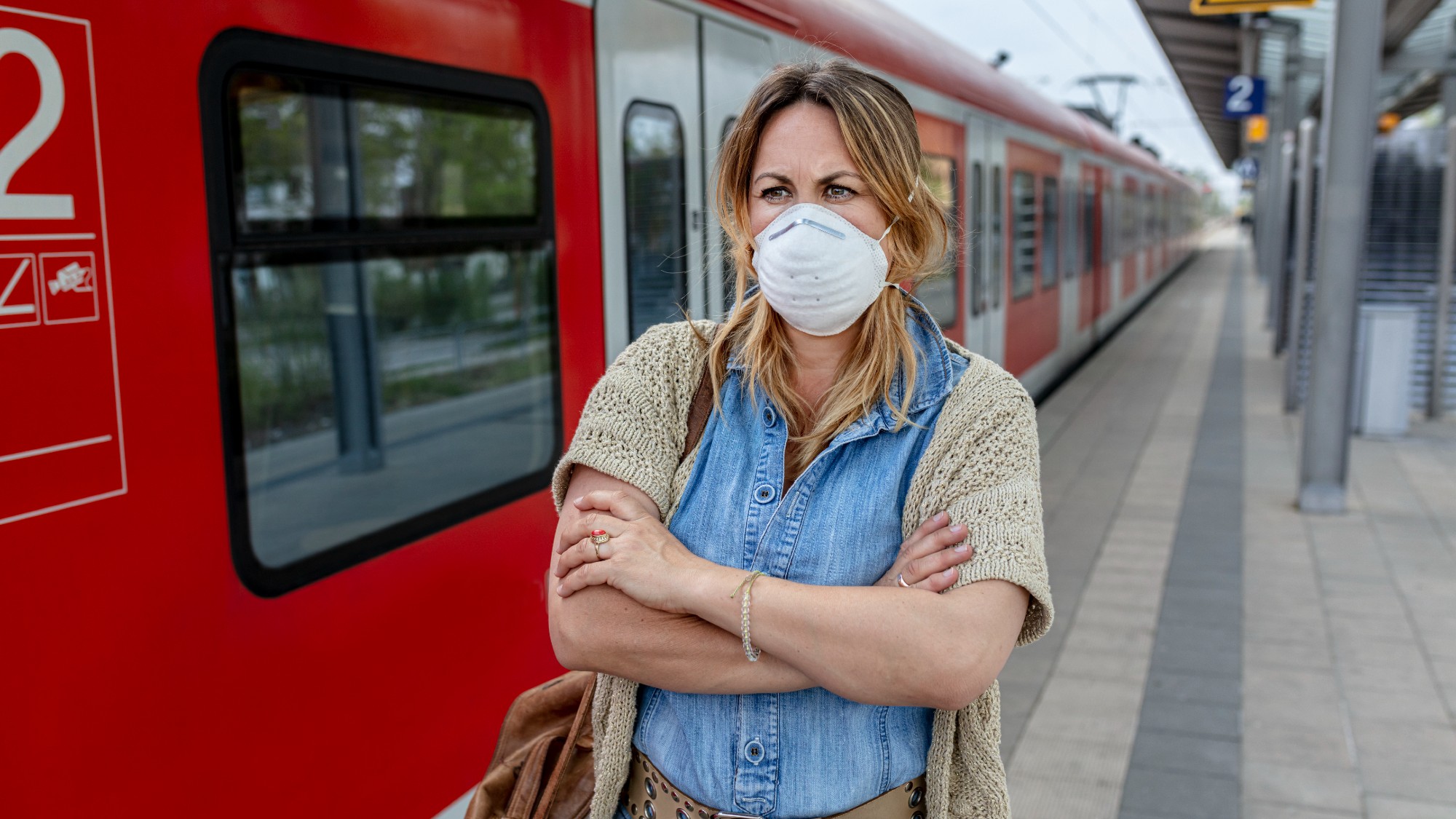Should masks be here to stay?
New York Governor Kathy Hochul proposed a mask ban. Here's why she wants one — and why it may not make sense.


A free daily email with the biggest news stories of the day – and the best features from TheWeek.com
You are now subscribed
Your newsletter sign-up was successful
Four years after the Covid-19 pandemic's onset, a lot less people are wearing masks. As vaccines offered protection and the rate of spread slowed, government recommendations for masking dropped. Now, New York's governor, Kathy Hochul, is considering outlawing masks on public transit. The policy was proposed to prevent criminal attacks, says Hochul, who fears that identity-concealing coverings may be worn in antisemitic ambushes. Hochul agreed that subway riders could have non-criminal reasons for covering their faces, including the prevention of illnesses like Covid and said those people would be excluded from the ban. However, "it was not immediately clear how such a distinction would be enforced," said The New York Times. The apparent incidents Hochul referenced also did not involve people wearing masks.
Masks became commonplace in America amid the pandemic, but their ubiquity has waned in recent years. And many U.S. residents resisted them to begin with, calling it an infringement on their civil liberties. By contrast, mask-wearing in places like China, Hong Kong and Japan "was a cultural norm even before the coronavirus outbreak," said the BBC. Citizens in many Asian countries are "used to wearing masks when they are sick or when it's hay fever season because it's considered impolite to be sneezing or coughing openly."
The case for masking
Masks are proven to help stop the spread of Covid, an airborne virus that arrived in 2020 and has since set up permanent shop. As the virus mutates, there are often new strains. While there is not always available data on positivity rates — testing has become less available and less frequent — cases seem to be on the rise in the U.S., driven by the new FLiRT variants.
The Week
Escape your echo chamber. Get the facts behind the news, plus analysis from multiple perspectives.

Sign up for The Week's Free Newsletters
From our morning news briefing to a weekly Good News Newsletter, get the best of The Week delivered directly to your inbox.
From our morning news briefing to a weekly Good News Newsletter, get the best of The Week delivered directly to your inbox.
While deaths due to Covid have dropped since the start of the pandemic, the virus can still be deadly. Additionally, an estimated 5.3% of all U.S. adults have reported having Long Covid, according to the Centers for Disease Control and Prevention (CDC). This post-acute infection syndrome can stem from even a mild or asymptomatic Covid infection.
Masks may additionally help to prevent the increasing spread of other common infections. "At least 13 communicable diseases, from the common cold to measles and tuberculosis, are surging past their pre-pandemic levels in many regions," said Bloomberg. "Around the world, a post-Covid reality is beginning to sink in: Everyone, everywhere, really is sick a lot more often."
Masks can even guard against poor air quality from pollution and wildfires, increasingly frequent occurrences due to climate change. "N95 masks are the best option to reduce your exposure to pollutants," Dr. Bob Lahita, the director of the Institute for Autoimmune and Rheumatic Disease at St. Joseph's Health, said to CBS News.
'Symbols in the red state-blue state culture wars'
Governor Hochul suspects masks can aid criminals — or protestors — in evading the law. Her comments "came as New York City continues to be the site of steady protests that began after the outbreak of the Israel-Hamas war on Oct. 7," said the Times. "Pro-Palestinian demonstrators have said that wearing masks is necessary because of police surveillance and threats … that participating in demonstrations could render protesters unemployable," said The Guardian.
A free daily email with the biggest news stories of the day – and the best features from TheWeek.com
New York City mayor Eric Adams backed Hochul: "People have hid under the guise of wearing a mask for Covid to commit criminal acts," he said. "Civil rights leaders" like Martin Luther King Jr. "did not hide their faces," but "the [Ku Klux] Klan" did, Adams added.
A distrust of masks as tools for preventing infection may have been fostered by Anthony Fauci, the nation's former top infectious disease expert, who said they were not helpful in the pandemic's earliest days. He quickly backtracked and has since said the opposite — but the damage was done. Poor government messaging also means many people mistakenly assume surgical and cloth masks provide equivalent virus protection to KN95 or N95 masks.
Some Americans have steadfastly resisted masking for symbolic reasons. Masks "now carry weight as symbols in the red state-blue state culture wars, with segments of the country seeing them as an affront to their freedoms and others considering them a demonstration of caring for others," said The New York Times.
Approximately 3% of U.S. adults are immunocompromised, and thus more susceptible to infection. Masking in public can help protect the most vulnerable, but reluctance to do so is not exactly surprising. "Americans are less likely than others around the world to feel close to people in their country or community," according to a 2023 Pew Research Center survey. Plus, Covid has been here four years, and people are tired of taking precautions.
Anya Jaremko-Greenwold has worked as a story editor at The Week since 2024. She previously worked at FLOOD Magazine, Woman's World, First for Women, DGO Magazine and BOMB Magazine. Anya's culture writing has appeared in The Atlantic, Jezebel, Vice and the Los Angeles Review of Books, among others.
